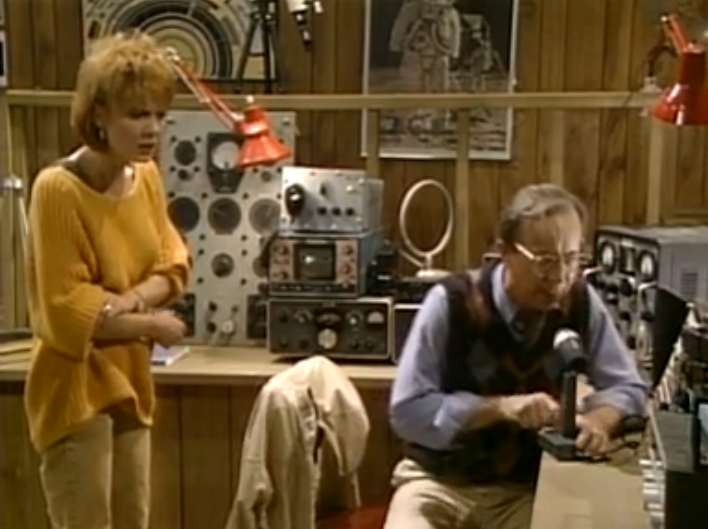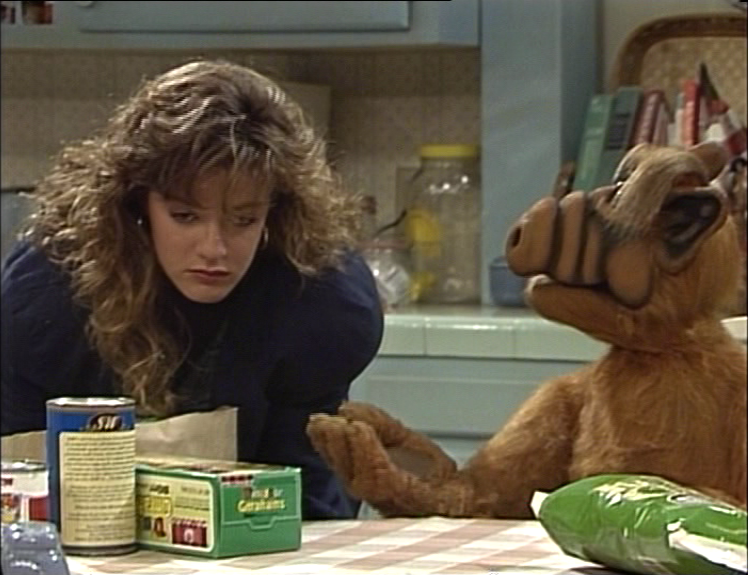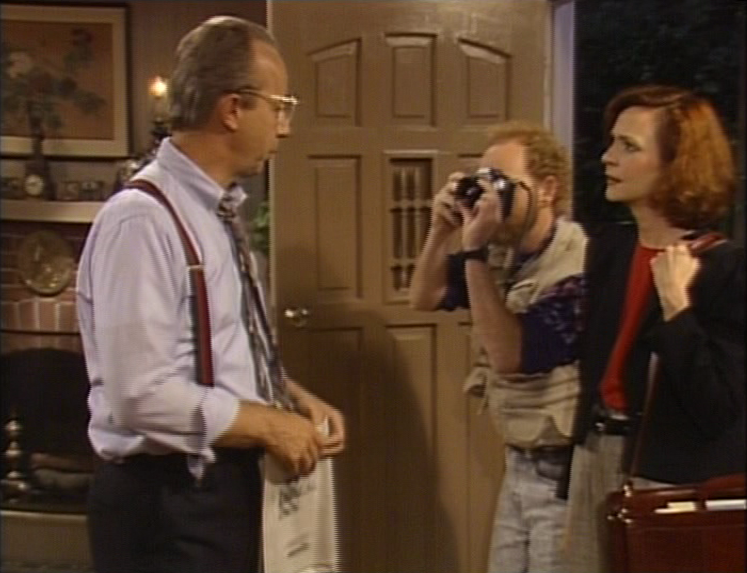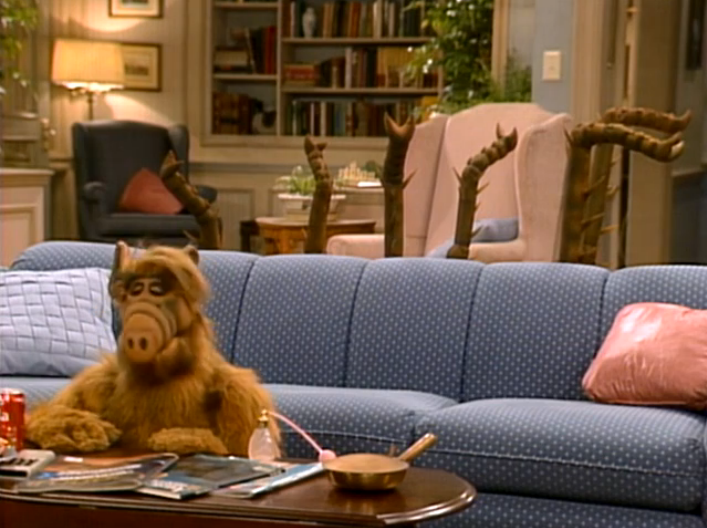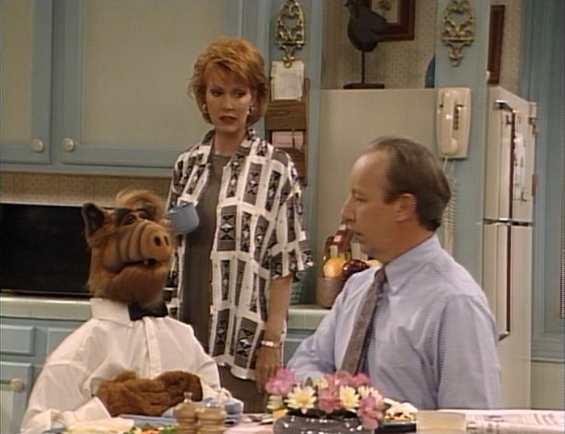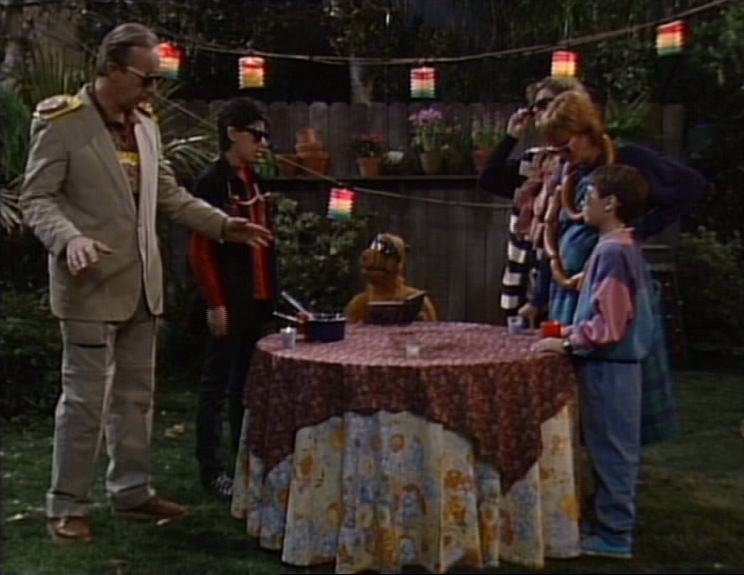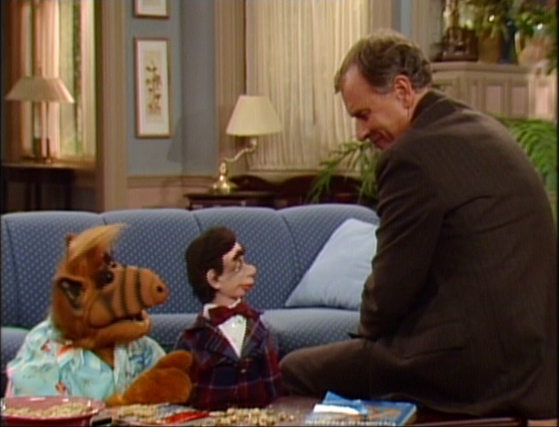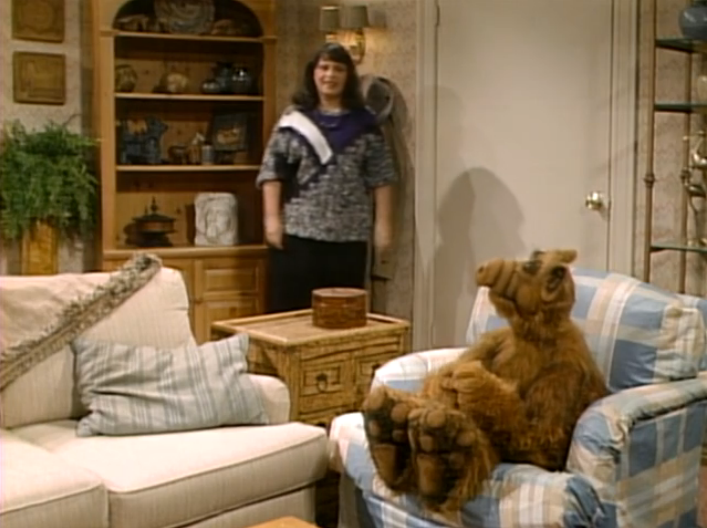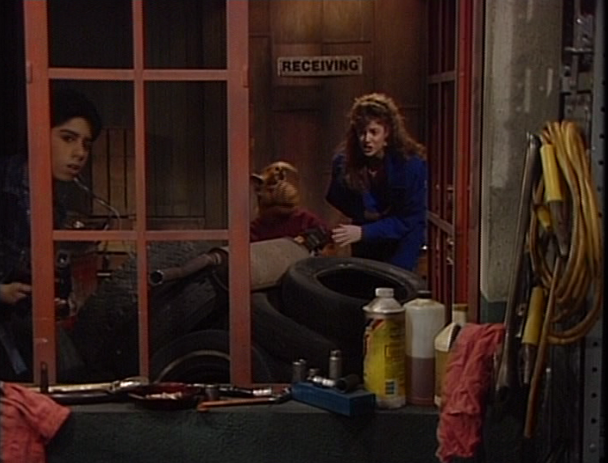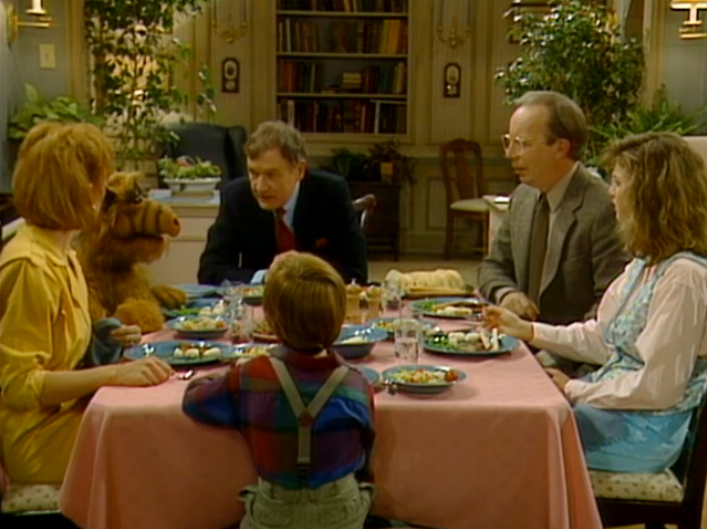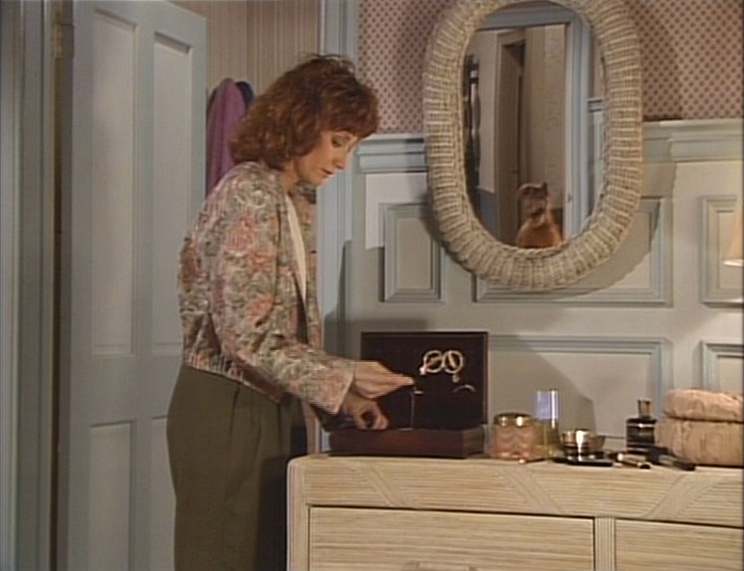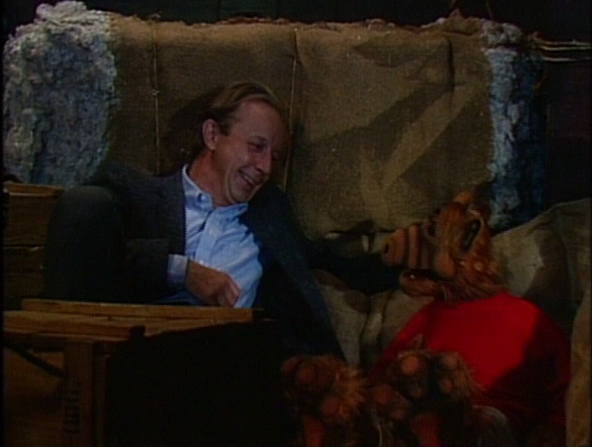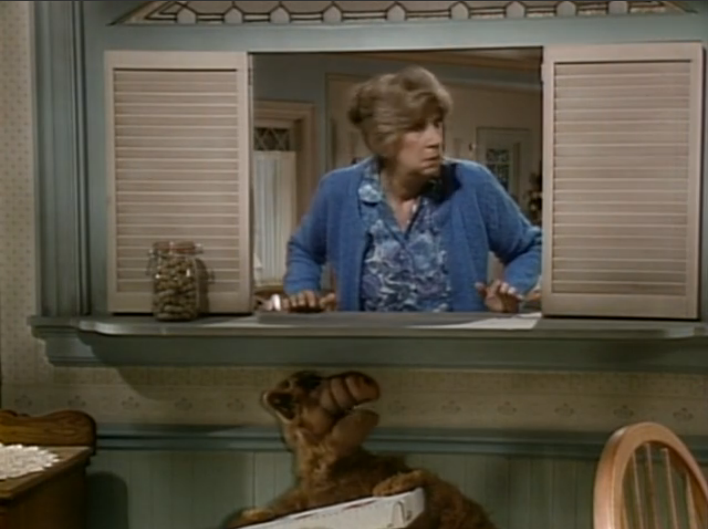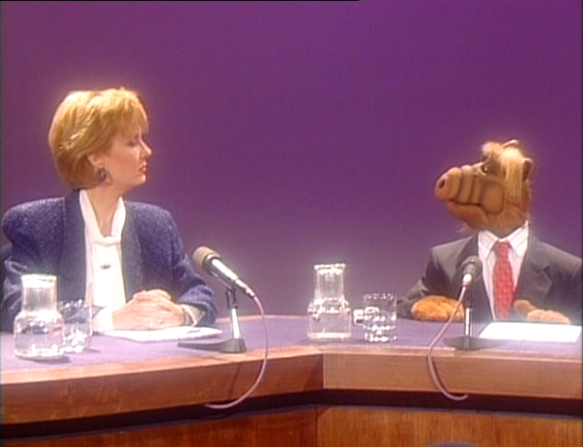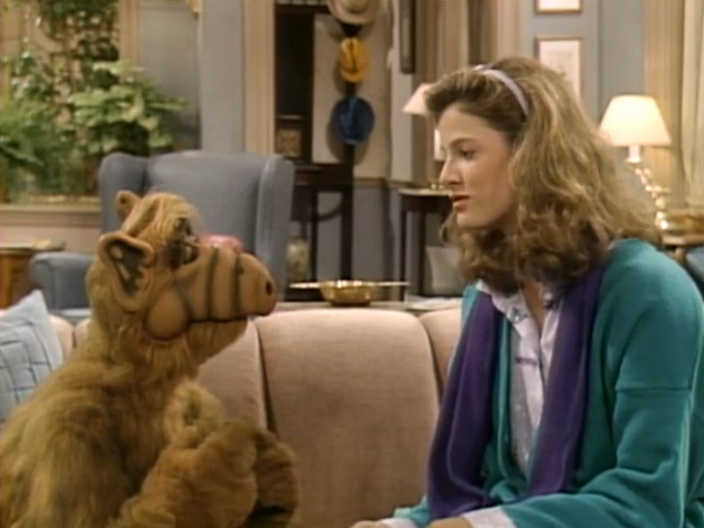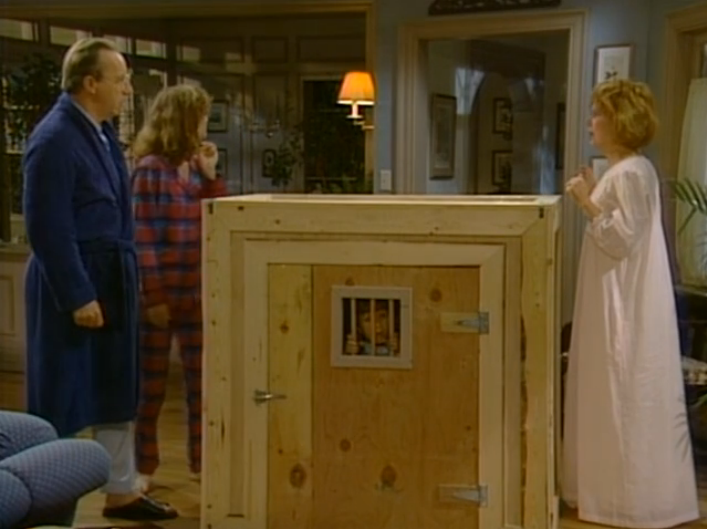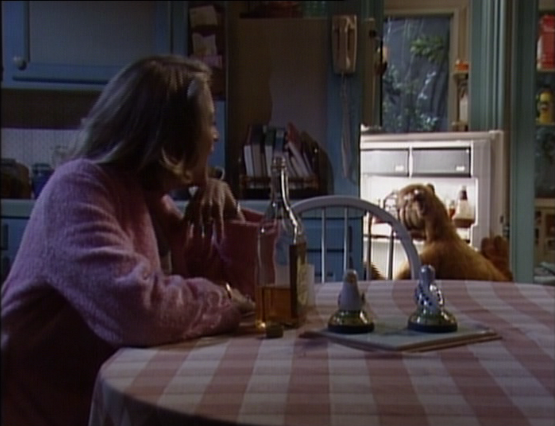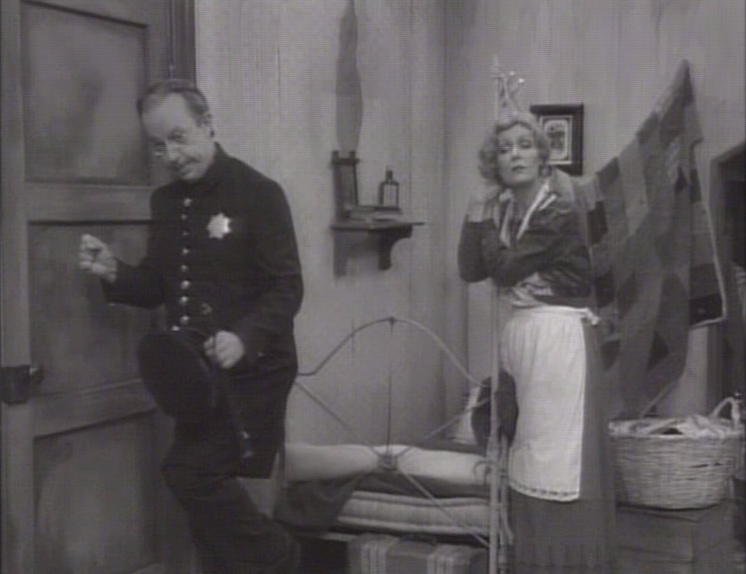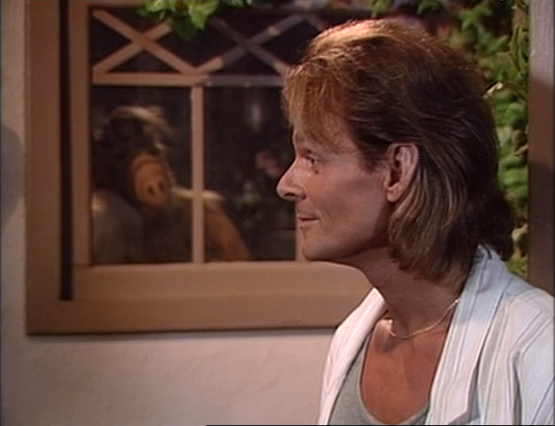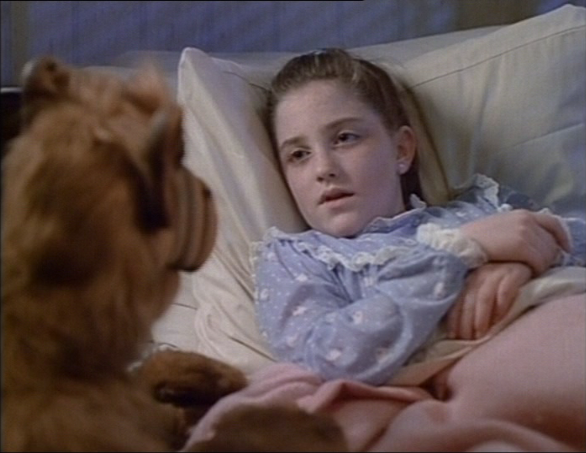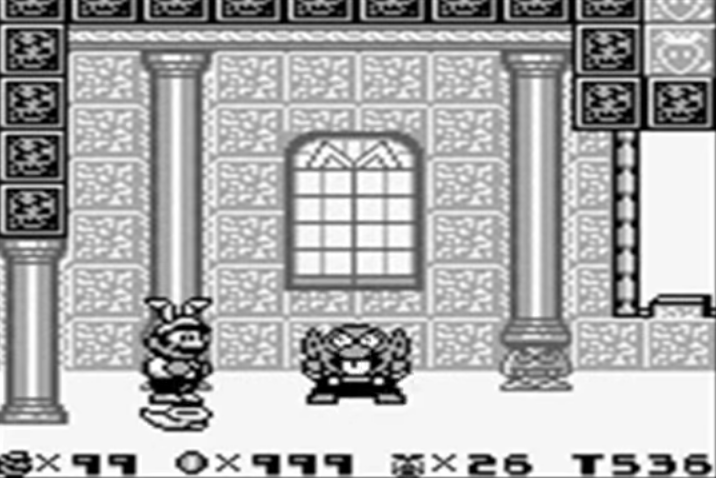My trademark griping about things I love aside, The Muppet Movie is wonderful. Maybe not the film I’d like it to be, but if you do the math Jim Henson was slightly more of a successful artist than I am, so it might be worth deferring to his judgment now and again. It was sweet. It was funny. It had incredible music. What more could you want?
I’m glad you asked! Because The Great Muppet Caper provides my answer: The Great Muppet Caper.
Everything good about The Muppet Movie is, simply, better here. And any niggles I have with The Muppet Movie are entirely erased. The Great Muppet Caper is sweeter, funnier, and features even better music. The one area in which the first film might edge this one out is its sheer volume of great cameos. The Great Muppet Caper has admittedly fewer, but it does have the single best Muppets cameo ever…and we’ll get to that in due time.
My love for The Great Muppet Caper probably doesn’t come as a surprise. It’s a common reference point for me, and I bring it up a lot. Not just because I think it’s a good children’s movie and the best Muppet film, but because it is genuinely one of my favorite movies. Period.
I adore The Great Muppet Caper. From beginning to end, top to bottom, line to line, song to song…every moment speaks to me in ways that few films do. The hour and a half I spend each time I watch it is like catching up with an old friend. You slip into inside jokes and references only the two of you will understand. You feel the comforting weight of a shared history. You remember something you had…something you might not have any more, but the memory is enough. It’s enough to know it happened.
I had The Great Muppet Caper on video when I was a kid. I watched it endlessly. To this day I’m not sure I’ve seen any other film a greater number of times.
And that’s an admission I’ll make now: as much as I love it, it’s possible that it’s only my favorite because this is the one I had. Had I owned The Muppet Movie (or, God forbid, The Muppets Take Manhattan) instead, maybe I’d be balancing these reviews differently.
But I don’t know if that’s true. It’s possible, but not likely. Again, this isn’t just my favorite Muppet film; it’s one of my favorites overall. It rises not just to the top of one list, but to the top of the list. And I think that says something.
We only had a few movies growing up. Willy Wonka and the Chocolate Factory is also one of my favorites today, for many of the same reasons that I love The Great Muppet Caper. (Look for a Fiction Into Film on that eventually. It’s a given.) We also had Yellow Submarine, Ghostbusters, Back to the Future, and a handful of others. And while I hear echoes of my childhood whenever I watch those other films, The Great Muppet Caper is my childhood.
It’s a part of who I was, and who I became. It was a movie I enjoyed as a kid that I appreciate as an adult. It grew up with me. It can engage with me as I am today, and it can remind me of who I was a lifetime ago. It was released just a few months after I was born. For all intents and purposes, we are the same age. It’s my peer. It’s the one friend I’ve had for my entire life.
If The Muppet Movie laid the basic groundwork for Muppet films, The Great Muppet Caper showed what I think they should be.
Muppet films fall into one of two camps. There are movies about what the characters are up to (The Muppet Movie, The Muppets Take Manhattan, The Muppets), and movies that treat the characters as a troupe of players that can be plugged into one-off stories (The Great Muppet Caper, The Muppet Christmas Carol, Muppet Treasure Island). In other words, the former category treats them like characters, and the latter treats them like actors.
I prefer the second approach, to be honest. (That’s the closest thing you’ll ever see to a kind word about The Muppets’ Wizard of Oz.) I think that television, on the whole, is better suited to checking in with characters on a longterm basis, while film is better served by bigger, singular stories. Exceptions abound, of course, but comparing The Muppet Movie and The Great Muppet Caper doesn’t shake my convictions.
It doesn’t hurt that The Great Muppet Caper weaves an original story around its general crime fiction framework, which, to my mind, gives it an inch more merit than the Muppefied adaptations of other stories that followed. It’s nothing especially remarkable in itself — Kermit and co. track down and capture a jewel thief — but it provides a sturdy (well, sturdy enough) narrative throughline that its predecessor and successor both lack.
This helps the film to feel much less like a loose collection of skits and setpieces, as every scene advances or comments in some way upon the greater plot.
It also doesn’t hurt that the jewel thief is playing fucking brilliantly by Charles Grodin, who gives himself over completely to the insanity.
Whereas the first film’s Doc Hopper was a bit too evil to be interesting, Grodin’s Nicky Holiday is rich, nuanced, and an absolute blast to spend time with. Charles Durning, to me, didn’t seem like he had much of a handle on his character beyond a desire to enlist Kermit as his spokesfrog by any means necessary. In stark contrast, I believe Grodin knows everything there is to know about Nicky Holiday…a belief that seems to be upheld by the fact that we often see him doing things other than reacting to Muppets.
In fact, we see him go through several distinct phases, only one of which has anything to do with the Muppets. This rounds him out, and gives us reason to believe that he is a character. We see him as the dangerous, calculating thief when the film opens, but later when he’s with his sister (and victim) he’s a clowning buffoon. He’s a slimeball, but one that revels in slime. He has fun with what he’s doing…toying with her and everybody he meets, playing the part of a helpless idiot so that he’ll never be a suspect. There’s even some hilarious drunk acting in the scene at the Dubonnet Club which feels just artificial enough that it’s believable misdirection on his part.
And then, most significantly, there’s the phase in which he meets and falls for Miss Piggy.
He reconsiders what he’s doing. He thinks twice. Victimizing his sister comes naturally to him, but when it comes time to frame Piggy, he has a twinge of something a bit like conscience. There’s real conflict there…one born of a kind of emotion he never expected to feel. In a lovely, artful touch, he finds Piggy on the dance floor during “The First Time It Happens” precisely as the singers croon “Just when you thought you forgot how to care…”
He still goes through with it, of course. “I’m a villain,” he explains. “Pure and simple.” But the glimpse of something beneath his evil exterior makes a world of difference. His reluctance defines him as a character…the psychological equivalent of the pair of flowered socks he wears beneath his dress pants. (An incredible little wardrobe detail that in itself contains more character than Doc Hopper ever did.)
Nicky Holiday is a true rarity in a Muppet movie: a human character every bit as well-defined as the puppets. And while I’m fully aware of how much some readers might like to read that as an insult, man, these are some great puppets.
The Great Muppet Caper was released a few months after The Muppet Show aired its final episode, which allowed a few faces from late in that show’s run to put in an appearance here after missing The Muppet Movie. Those include Pops, Beauregard, and — most interestingly — Rizzo the Rat. I love both Pops and Beauregard, and they both get some very funny lines in this film, but it’s amazing to remember that Rizzo wasn’t there from the start. He seems like such a natural part of the group now. (He was also the breakout character for puppeteer Steve Whitmire, who eventually went on to fill Henson’s very big shoes as Kermit the Frog.)
But it’s the core quartet that really gets the focus in this one, and that works in the film’s favor. Rather than trying to spread its attention over dozens of characters, we really only spend significant time with Kermit, Fozzie, Gonzo, and Miss Piggy. The others just get a spotlight moment, and spend the rest of their time in the background, which I think works quite well. Zoot admits to owning only one pair of pants. Rowlf convinces some guard dogs to stand down. (“It helps to know a second language.”) Sam the Eagle pops his head out from his room to dismiss the other Muppets as weirdos.
And that works. Giving each of the minor characters only a joke or two is successful because they’re memorable jokes. They’re good lines. They’re funny. Rather than trying to cram multiple threads and spotlights into a single film, they’re sprinkled around the main plot like garnish, or seasoning. It means the jokes are always coming, but the story doesn’t have to slow down and wait for them.
It’s a very effective way for the film to have its cake and eat it, too, and the writers deserve recognition for that. Jerry Juhl returns from The Muppet Show and The Muppet Movie, but he’s assisted this time by Jack Rose (who wrote for Bing Crosby and Bob Hope, among others), Jay Tarses (with The Bob Newhart Show and The Carol Burnett Show under his belt), and, funnily enough, Tom Patchett of ALF fame. They’re a great team, and I can honestly say that the screenplay for this film is tighter, punchier, and more clever than The Muppet Movie‘s.
The dialogue isn’t the only kind of writing that improved, though: the soundtrack is also a nice step up.
I imagine I’ll get some pushback for this, but I don’t mean to imply that the Williams / Ascher songs from The Muppet Movie weren’t great. I mean only to say that the songs Joe Raposo wrote for this film are better.
That may have something to do with the fact that Raposo was no stranger to composing for Muppets; he was probably best known for writing tunes for Sesame Street, including its legendary theme song. He knew Henson’s creations well. He knew how they sounded, how they acted, and how to craft a perfect song for them that would appeal to children without boring (or irritating) adults.
He wrote far too many songs for that show to list them here, but to give you an idea of just how deeply he understood the Muppets, he wrote “It’s Not Easy Bein’ Green.” That immediately became — and still remains — Kermit’s signature song.
Raposo was an absolute treasure, and an invaluable asset to Sesame Street, and ceding the score to him here gave us some of his best compositions. (Why he didn’t also provide songs for Follow That Bird in 1985 is a mystery to me, but the songs in that movie are also great so let’s not worry about it too much.)
“Happiness Hotel” is a cynical, snappy paean to the film’s dingy central setting. “Hey, a Movie!” is an infectious celebration of Hollywood magic in general. And “Steppin’ Out With a Star” is an absolutely charming tune that feels like it was dug out of a forgotten 1930s songbook. But “The First Time It Happens”…
Oh, man. “The First Time It Happens.”
What a gorgeous, incredible song. It’s an absolutely beautiful composition. Moving, sweet, memorable…a genuinely lovely track that by no means feels like it was written for a pig and a frog, and therefore helps to elevate the sequence (and the pig and the frog) to something more general, more relatable…something we’ve all felt, however briefly. Something we remember. Something we reflect on. A perfect moment that just feels right before life gets in the way, time runs out, and we’re back where we were.
That song was actually nominated for an Academy Award, and the fact that it didn’t win invalidated the Oscars for the rest of time.
Look, I like The Great Muppet Caper, but even I’ll admit that a movie about some puppets beating the shit out of Charles Grodin didn’t deserve a set of songs as catchy, as funny, as sharp, or as beautiful as what we got. And I doubt there have been many composers in the history of film that could have pulled it off.
But Joe Raposo, clearly, was one of them. And I can’t imagine what the film would have sounded like without him.
One other way that The Great Muppet Caper improves upon The Muppet Movie is its portrayal of Fozzie Bear. In the first film, he’s just a not-very-good comedian. Which is true to the character, for sure. But there’s more to Fozzie than that. Specifically, there’s his fragility.
In fact, I would argue that the two traits are deeply related. Fozzie may struggle to make others laugh, but, really, his jokes are no worse (and no more hacky) than anything the other Muppets sling out. So why does he bomb so notably and so often? His lack of confidence. Fozzie feels like a failure, and his audiences pick up on that. The other Muppets don’t feel that way, so they don’t receive the same kind of scorn.
Fozzie’s constantly thwarted standup aspirations might be his main character trait, but it’s his fragility that explains it. And The Great Muppet Caper gives that important side of him — the self-doubt, the anxiety, the worry that he’s going to do or already did something wrong — some very effective breathing room.
That’s something that The Muppet Movie largely ignored. It was a comedy at all points, with only a handful of introspective scenes throughout the entire thing. (Gonzo singing in the desert, Kermit asking Doc Hopper who his friends are, and…actually, that might be it.) But The Great Muppet Caper finds room for both, and that’s important. It gives the entire film an identifiable emotional center.
There’s a great moment around the midway point when Kermit is getting ready for a date with Piggy (who he believes is Lady Holiday, the woman he’s come to England to interview). Fozzie preens alongside him and offers advice for their date…until he’s told that he’s not invited.
And, son of a bitch, if you’ve ever wanted to see a puppet’s heart break, that is the moment for you.
It’s a childlike misunderstanding. In Fozzie’s mind of course he’d go with Kermit. He always goes with Kermit! What makes tonight any different?
We know. And Kermit knows. And Piggy knows. But Fozzie doesn’t. And when Kermit tells him he can’t come, he’s quietly devastated. He doesn’t understand, but he respects Kermit’s decision. At some point, after all, won’t Fozzie have to live his own life?
Maybe. But does it have to be today?
It’s a gorgeous little moment, and it’s perfectly acted. It also sets up the great punchline to the scene: Kermit lets Fozzie come anyway. He knows it’s inappropriate. He knows it could put a damper on the evening. But he also knows that Fozzie’s feelings matter. And if he has to whiff on a date with Lady Holiday to avoid hurting his friend (and colleague, and identical twin brother), he’ll do it.
It’s a sweet resolution that becomes a comic one when Fozzie excitedly invites the entire Happiness Hotel to join them. Once again, The Great Muppet Caper has its cake and eats it, too. It gets to be both heartfelt and funny.
And Fozzie’s emotional arc culminates in a great speech toward the end, in which he chides the other Muppets for backing out of the plan to catch the jewel thieves. Fozzie’s still scared, but he’s going to do it. And he rallies the troops on his friend’s behalf…something he could not have done any earlier in the film.
He grew up…just a little.
In fact, The Great Muppet Caper gets to be both heartfelt and funny throughout, as exemplified by the movie’s best scene, which brings meta comedy to the fore, and spotlights the film’s artifice at precisely the same moment that its emotions turn real.
The scene is a deceptively complicated one. The Muppet Movie toyed with meta comedy (most notably by having its own characters read the screenplay to solve problems), but The Great Muppet Caper takes the joke even further.
It opens with the characters in a hot air balloon commenting on credits they shouldn’t even be able to see. (In a sweet joke to set the tone for the entire film to follow, Fozzie asks, “Nobody reads those names anyway, do they?” Kermit replies, “Sure. They all have families.”)
Later, when Kermit’s boss asks him why he thinks he’ll get another chance after botching the story about the jewel heist, the frog replies that if he doesn’t, “it’ll be a real short movie.”
And later still Kermit has to shoo a rambling Peter Falk out of the scene so they can shoot the rest of the film. (Falk’s role, by the way, sees him delivering a masterfully dry shaggy dog story, and it’s the second best cameo in the movie. Which says something, because in any other movie it would easily be the best.)
But the big meta moment…the perfect meta moment…one of my favorite moments in any movie ever…comes when Kermit confronts Miss Piggy about her deception: she’s not Lady Holiday. She lied to him. And he’s hurt.
He spurns her at the park, and refuses to listen to her explanation…at which point she picks up on something. He’s not just angry; he’s jealous. She danced with Nicky Holiday, and it upset him.
So she prods. And he walks away. And she prods some more until he lashes out by insulting her acting ability.
Not Piggy the character…but Piggy personally. She gets hurt, and lays into him personally as well. They break character. She threatens to walk out on the film. They shout at each other. They fight.
It doesn’t feel playful. It feels angry.
…and she cries.
And he realizes he hurt her feelings. Her real feelings. And he feels terrible.
He apologizes. She’s sorry, too. And they slip right back into character…the fight and the apology working also to address the problem the characters were having in the film. An apology for hurt feelings in real life doubles as the apology for deception in the film.
It’s brilliant.
In that moment we slide out of one layer of fiction and into another, and then back into the first without missing a beat. The fight works because it’s the real Kermit and Piggy who are upset with each other, behind the scenes, which is why it matters. They first argued in the second layer of fiction and it didn’t hit us the same way, because we know they’re just playing characters. But when that particular reality breaks, the emotion is real. And they hurt each other.
And they feel awful about it.
They feel so bad about it that they stop dead where they are, and they apologize. As they make amends, so do their characters.
It’s absolutely perfect.
I’m calling attention to Kermit’s relationships with Fozzie and Piggy not just because I enjoy how they’re handled here, but because they’re crucial to understanding Kermit and who he is. They’re the two most important relationships in his life, and while they may both frustrate him, he cares deeply about them both, how they feel, and their happiness. And, ultimately, they care about the same things for him as well.
It’s interesting, because both Fozzie and Piggy were played by Frank Oz, one of Henson’s earliest and strongest collaborators. Their real-life friendship and shared experiences informed the way these pairs of characters interact, because as well-drawn as many of the other Muppets are, it’s difficult to imagine Kermit being this close to Gonzo or Scooter for instance.
There’s an element of sincerity between Kermit / Fozzie and Kermit / Piggy that I don’t think someone other than Oz, no matter how good the performance, could pull off. It comes from a real place. A place that can’t be faked.
It’s also observable in Sesame Street. Most notably there’s the Bert / Ernie dynamic, a contentious but clearly loving relationship, but we also see it whenever one of Henson’s characters interacts with one of Oz’s in a non-standard pairing. See, for instance, the times Kermit hangs out with Cookie Monster, or Grover. In the latter’s case, especially, there’s an awful lot of hugging, and one imagines that if Kermit were primarily a Sesame Street character that Grover would have been his Fozzie Bear.
Character relationships like this are what make Muppet productions what they are. They’re not just movies and TV shows about puppets doing puppety things. In fact, the things I love most about them don’t require them to be puppets at all.
I like it when they talk. When they argue. When they apologize and come back together. I like it when they interact, and tell silly jokes, and support each other through difficult times. I like Gonzo pontificating in the desert. I like Piggy and Kermit breaking the fourth wall with their strained relationship. I like Scooter getting his radio frozen to his wrist.
These are all things people could do, which is part of what makes the Muppets real. They’re not all that far removed from human characters at all.
And The Great Muppet Caper has the best human characters as well, including, of course, the film’s absolute best cameo: former Muppet Show host John Cleese. (Also, he was apparently in some other things, but I’m sure you haven’t seen them.) Cleese’s scene is a perfectly pitched, perfectly dry comedy of dullness.
He and his wife (played by Joan Sanderson, his problem guest from the “Communication Problems” episode of Fawlty Towers) make distracted small talk while Piggy sneaks around their home, waiting for Kermit to turn up. That’s just about all that happens, but Cleese and Sanderson play off of each other very well, either mishearing or outright ignoring what the other says, while feeling obligated to keep some kind of conversation going. (“And the butler’s dead?”)
Then the doorbell rings, and Piggy seethes as these two then start talking about how nobody visits them, who should answer it, and so on. She gets more and more frustrated until she breaks, standing up and shouting, “I’ll answer it!”
It’s a great moment, and afterward Cleese stalks Kermit and Piggy through the house with a fireplace poker…just to put it away when he finds them and offers a restaurant suggestion.
It’s exactly the kind of scene that could have fit into The Muppet Movie — it is, after all, very much a self-contained comedy sketch — but it feels of a more natural part with The Great Muppet Caper. It doesn’t seem at all like an excuse to have a funny guest star do funny things, even though that’s exactly what it is. It feels like a very deliberate part of a very particular film, and that’s how all of The Great Muppet Caper feels. It feels cohesive. It feels complete. It feels like a movie that knew exactly what it wanted to be before it ever started shooting.
Whenever I think about these characters, it’s this incarnation I land on first. Kermit, Fozzie, Piggy, Gonzo…they’ve been many places and they’ve done many things, but the group of silly, well-meaning misfits that they play here, who travel around to make things right, to band together, to catch the bad guys red handed…these are the ones I believe in.
It’s a shame to me that The Great Muppet Caper never really set a precedent for films to follow the way it could have. Sticking these guys into a new, original adventure every few years could have brought us to a lot of fun places, especially while Jim Henson himself was still alive to guide them.
But I can’t complain. Or, at least, if I can complain it’s only because I want more of this.
The Great Muppet Caper is one of my favorite films. It holds up. It’s every bit as funny today as it was when I was a kid, even if I’m laughing at different things.
Very early in the film, Kermit tells the audience, “I wish I were you people, seeing this for the first time.”
I’m with him on that. If you haven’t seen the movie yet, do yourself a favor and check it out. It’s full of great surprises, excellent gags, and joyously sweet moments. It is itself a celebration of film, of entertainment, and of imagination.
And it’s my favorite of the many gifts Jim Henson left us.
Each of us finds that one Henson project that resonates most deeply with us, and we each find it in our own time. It comes to us when we’re ready, and it stays with us forever.
Nobody can tell you ahead of time which one it will be, but the first time it happens, you’ll know.





























